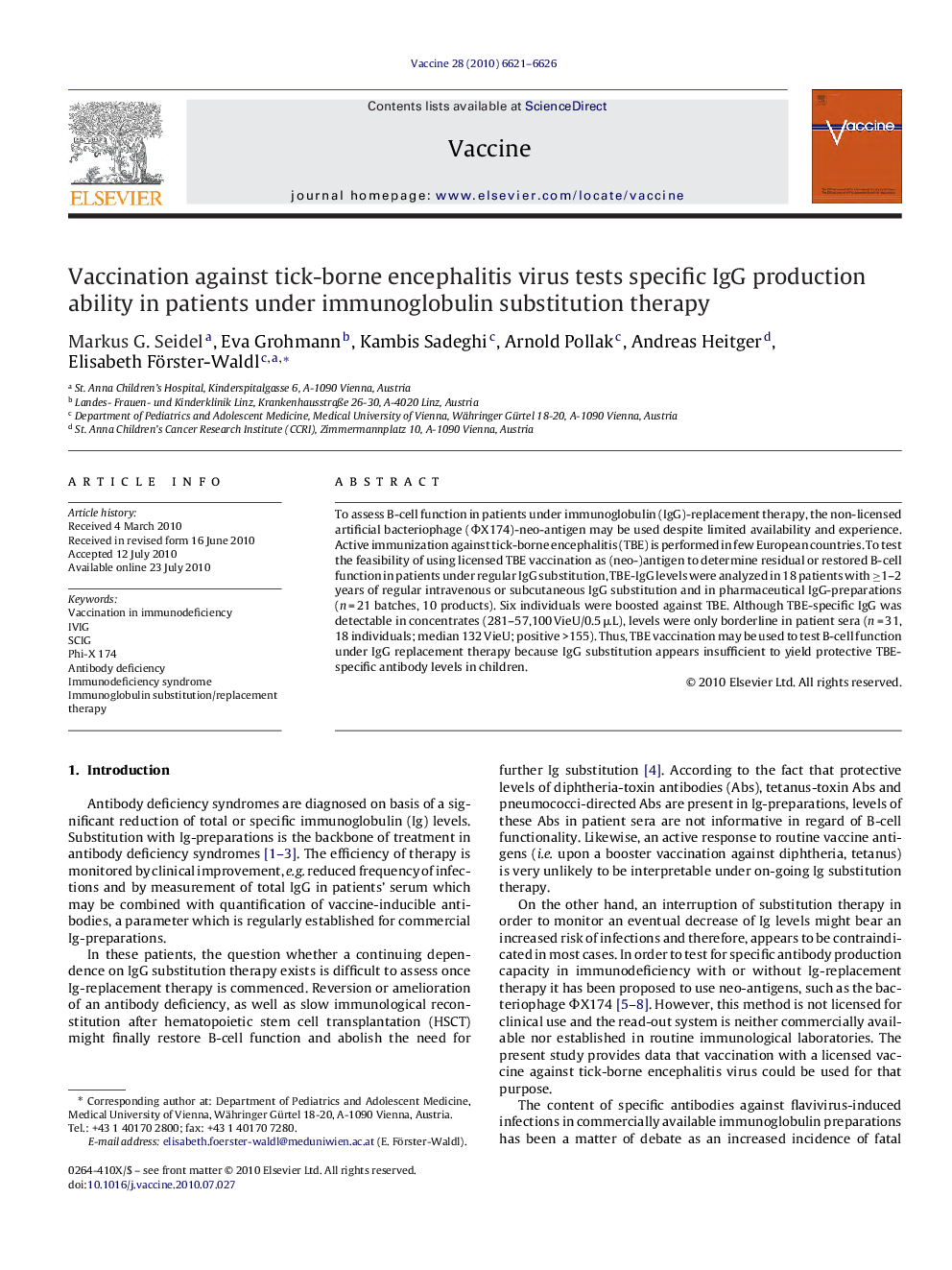| Article ID | Journal | Published Year | Pages | File Type |
|---|---|---|---|---|
| 2404323 | Vaccine | 2010 | 6 Pages |
To assess B-cell function in patients under immunoglobulin (IgG)-replacement therapy, the non-licensed artificial bacteriophage (ΦX174)-neo-antigen may be used despite limited availability and experience. Active immunization against tick-borne encephalitis (TBE) is performed in few European countries. To test the feasibility of using licensed TBE vaccination as (neo-)antigen to determine residual or restored B-cell function in patients under regular IgG substitution, TBE-IgG levels were analyzed in 18 patients with ≥1–2 years of regular intravenous or subcutaneous IgG substitution and in pharmaceutical IgG-preparations (n = 21 batches, 10 products). Six individuals were boosted against TBE. Although TBE-specific IgG was detectable in concentrates (281–57,100 VieU/0.5 μL), levels were only borderline in patient sera (n = 31, 18 individuals; median 132 VieU; positive >155). Thus, TBE vaccination may be used to test B-cell function under IgG replacement therapy because IgG substitution appears insufficient to yield protective TBE-specific antibody levels in children.
